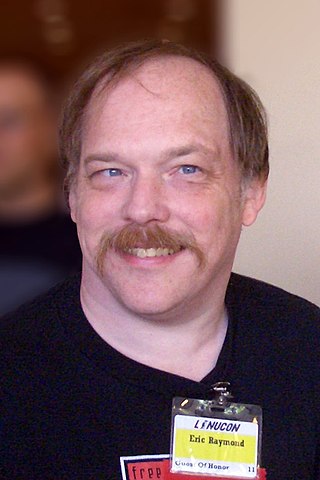
Eric Steven Raymond, often referred to as ESR, is an American software developer, open-source software advocate, and author of the 1997 essay and 1999 book The Cathedral and the Bazaar. He wrote a guidebook for the Roguelike game NetHack. In the 1990s, he edited and updated the Jargon File, published as The New Hacker's Dictionary.

A hacker is a person skilled in information technology who achieves goals by non-standard means. Though the term hacker has become associated in popular culture with a security hacker – someone with knowledge of bugs or exploits to break into computer systems and access data which would otherwise be inaccessible to them – hacking can also be utilized by legitimate figures in legal situations. For example, law enforcement agencies sometimes use hacking techniques to collect evidence on criminals and other malicious actors. This could include using anonymity tools to mask their identities online and pose as criminals. Likewise, covert world agencies can employ hacking techniques in the legal conduct of their work. Hacking and cyber-attacks are used extra-legally and illegally by law enforcement and security agencies, and employed by state actors as a weapon of legal and illegal warfare.
The hacker ethic is a philosophy and set of moral values within hacker culture. Practitioners believe that sharing information and data with others is an ethical imperative. The hacker ethic is related to the concept of freedom of information, as well as the political theories of anti-authoritarianism, socialism, liberalism, anarchism, and libertarianism.
A nerd is a person seen as overly intellectual, obsessive, introverted, or lacking social skills. Such a person may spend inordinate amounts of time on unpopular, little known, or non-mainstream activities, which are generally either highly technical, abstract, or relating to niche topics such as science fiction or fantasy, to the exclusion of more mainstream activities. Additionally, many so-called nerds are described as being shy, quirky, pedantic, and unattractive.
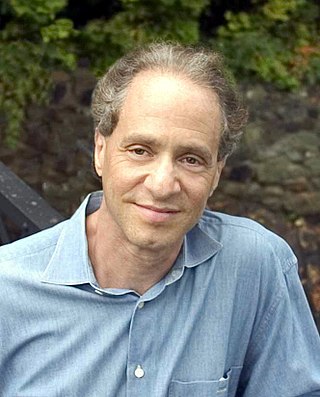
Raymond Kurzweil is an American computer scientist, author, inventor, and futurist. He is involved in fields such as optical character recognition (OCR), text-to-speech synthesis, speech recognition technology, and electronic keyboard instruments. He has written books on health, artificial intelligence (AI), transhumanism, the technological singularity, and futurism. Kurzweil is a public advocate for the futurist and transhumanist movements and gives public talks to share his optimistic outlook on life extension technologies and the future of nanotechnology, robotics, and biotechnology.

Stephen Wolfram is a British-American computer scientist, physicist, and businessman. He is known for his work in computer science, mathematics, and theoretical physics. In 2012, he was named a fellow of the American Mathematical Society.

The Homebrew Computer Club was an early computer hobbyist group in Menlo Park, California, which met from March 1975 to December 1986. The club had an influential role in the development of the microcomputer revolution and the rise of that aspect of the Silicon Valley information technology industrial complex.
The hacker culture is a subculture of individuals who enjoy—often in collective effort—the intellectual challenge of creatively overcoming the limitations of software systems or electronic hardware, to achieve novel and clever outcomes. The act of engaging in activities in a spirit of playfulness and exploration is termed hacking. However, the defining characteristic of a hacker is not the activities performed themselves, but how it is done and whether it is exciting and meaningful. Activities of playful cleverness can be said to have "hack value" and therefore the term "hacks" came about, with early examples including pranks at MIT done by students to demonstrate their technical aptitude and cleverness. The hacker culture originally emerged in academia in the 1960s around the Massachusetts Institute of Technology (MIT)'s Tech Model Railroad Club (TMRC) and MIT Artificial Intelligence Laboratory. Hacking originally involved entering restricted areas in a clever way without causing any major damage. Some famous hacks at the Massachusetts Institute of Technology were placing of a campus police cruiser on the roof of the Great Dome and converting the Great Dome into R2-D2.
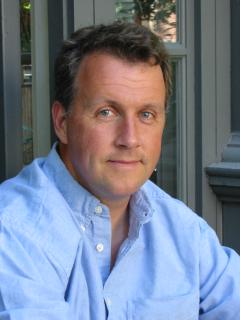
Paul Graham is an English computer scientist, essayist, entrepreneur, investor, and author. He is best known for his work on the programming language Lisp, his former startup Viaweb, co-founding the influential startup accelerator and seed capital firm Y Combinator, his essays, and Hacker News.
Arc is a programming language, a dialect of the language Lisp, developed by Paul Graham and Robert Morris. It is free and open-source software released under the Artistic License 2.0.

Robert Tappan Morris is an American computer scientist and entrepreneur. He is best known for creating the Morris worm in 1988, considered the first computer worm on the Internet.
John Walker was an American computer programmer, author and co-founder of the computer-aided design software company Autodesk. He was later recognized for his writing on his website Fourmilab. Walker died on February 2, 2024, at the age of 75.
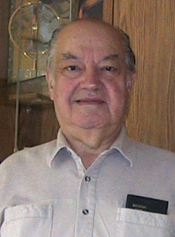
Paul Baran was a Polish-American engineer who was a pioneer in the development of computer networks. He was one of the two independent inventors of packet switching, which is today the dominant basis for data communications in computer networks worldwide, and went on to start several companies and develop other technologies that are an essential part of modern digital communication.
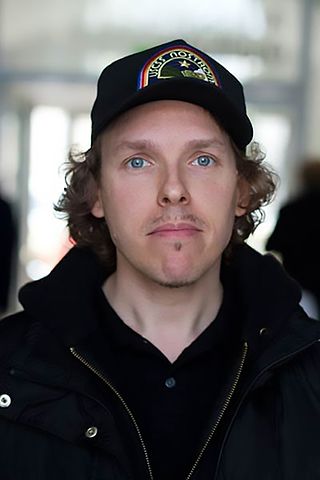
Johannes Grenzfurthner is an Austrian artist, filmmaker, writer, actor, curator, theatre director, performer and lecturer. Grenzfurthner is the founder, conceiver and artistic director of monochrom, an international art and theory group and film production company. Most of his artworks are labeled monochrom.
Greenspun's tenth rule of programming is an aphorism in computer programming and especially programming language circles that states:
Any sufficiently complicated C or Fortran program contains an ad hoc, informally-specified, bug-ridden, slow implementation of half of Common Lisp.
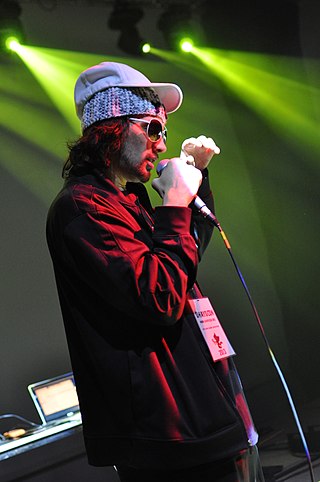
Bryce Case Jr., otherwise known as YTCracker, is an American rapper from La Mirada, California. His stage name derives from having formerly been a black hat hacker. Case is best known for his contributions to the Hacking community along with nerdcore hip hop subculture.
"All About Steve" is the third episode of the second season and the tenth overall episode of the animated comedy series American Dad!. It aired on Fox in the United States on September 25, 2005, and is written by Chris McKenna and Matt McKenna and directed by Mike Kim.
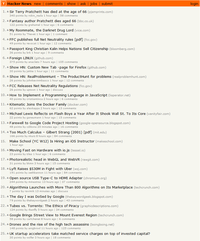
Hacker News is a social news website focusing on computer science and entrepreneurship. It is run by the investment fund and startup incubator Y Combinator. In general, content that can be submitted is defined as "anything that gratifies one's intellectual curiosity."
The Jargon File is a glossary and usage dictionary of slang used by computer programmers. The original Jargon File was a collection of terms from technical cultures such as the MIT AI Lab, the Stanford AI Lab (SAIL) and others of the old ARPANET AI/LISP/PDP-10 communities, including Bolt, Beranek and Newman, Carnegie Mellon University, and Worcester Polytechnic Institute. It was published in paperback form in 1983 as The Hacker's Dictionary, revised in 1991 as The New Hacker's Dictionary.
HipHop Virtual Machine (HHVM) is an open-source virtual machine based on just-in-time (JIT) compilation that serves as an execution engine for the Hack programming language. By using the principle of JIT compilation, Hack code is first transformed into intermediate HipHop bytecode (HHBC), which is then dynamically translated into x86-64 machine code, optimized, and natively executed. This contrasts with PHP's usual interpreted execution, in which the Zend Engine transforms PHP source code into opcodes that serve as a form of bytecode, and executes the opcodes directly on the Zend Engine's virtual CPU.











